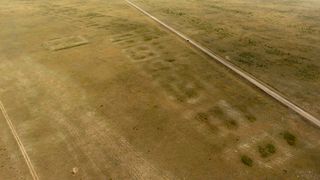
Skyler Ware
Skyler Ware is a freelance science journalist covering chemistry, biology, paleontology and Earth science. She was a 2023 AAAS Mass Media Science and Engineering Fellow at Science News. Her work has also appeared in Science News Explores, ZME Science and Chembites, among others. Skyler has a Ph.D. in chemistry from Caltech.
Latest articles by Skyler Ware

Saltwater crocodiles crossed the Indian Ocean to reach the Seychelles — before humans arrived and wiped them out
By Skyler Ware published
A DNA study reveals crocs that lived in the Seychelles represented the westernmost population of saltwater crocodiles, having swam at least 1,800 miles to reach the island.
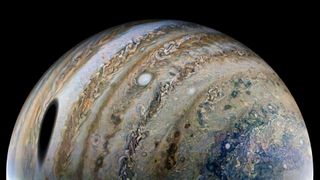
'Textbooks will need to be updated': Jupiter is smaller and flatter than we thought
By Skyler Ware published
Jupiter is smaller and flatter than scientists previously thought, new measurements of the gas giant reveal.
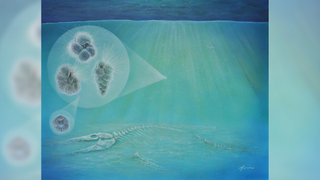
Life may have rebounded 'ridiculously fast' after the dinosaur-killing asteroid impact
By Skyler Ware published
After the asteroid smashed into Earth around 66 million years ago, it didn't take life that long to rebound, a new study finds.
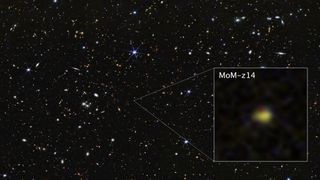
James Webb telescope breaks own record, discovering farthest known galaxy in the universe
By Skyler Ware last updated
The James Webb Space Telescope has confirmed the most distant, early galaxy in the known universe. The new contender, MoM-z14, is visible just 280 million years after the Big Bang.
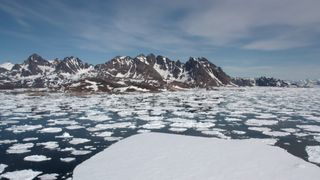
Critical moment when El Niño started to erode Russia's Arctic sea ice discovered
By Skyler Ware published
Scientists discover a tipping point that took place in 2000, where El Niño’s effect on sea ice loss in Siberia was amplified.
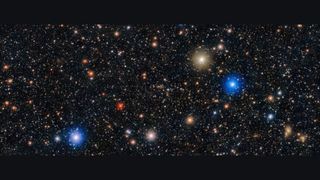
Standard model of cosmology holds up in massive 6-year study of the universe
By Skyler Ware published
The six-year Dark Energy Survey has released its full results, showing that two leading models of cosmology are equally valid — but both fail to explain one key observation.

Scientists see monster black hole 'reborn' after 100 million years of rest
By Skyler Ware published
Scientists saw an inactive black hole 'reawaken' from a 100-million-year nap with fire and fury.

James Webb telescope discovers earliest Type II supernova in the known universe
By Skyler Ware published
An extremely early Type II supernova explosion, named after the Titan goddess of dawn in Greek mythology, occurred just 1 billion years after the Big Bang.
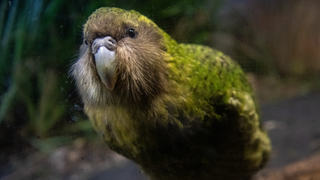
Rare nocturnal parrots in New Zealand are breeding for the first time in 4 years — here's why
By Skyler Ware published
The 2026 breeding season for endangered kākāpō could produce the most chicks in decades.

James Webb telescope saw black holes emerging from 'cocoons' near the dawn of time
By Skyler Ware published
The gaseous cocoons surrounding "little red dots" hint at their true nature, a new James Webb telescope study hints.
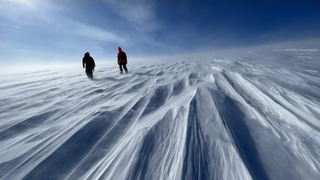
Huge ice dome in Greenland vanished 7,000 years ago — melting at temperatures we're racing toward today
By Skyler Ware published
Scientists drilled to the bottom of Greenland's 1,600-foot deep Prudhoe Dome and found it disappeared in the early Holocene, when temperatures were close to what we're predicted to reach by the end of the century.
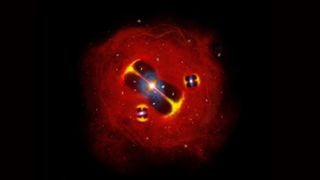
'How can all of this be happening?': Scientists spot massive group of ancient galaxies so hot they shouldn't exist
By Skyler Ware published
An inexplicably hot, fast-growing cluster of galaxies in the early universe has scientists questioning theories of galactic evolution.
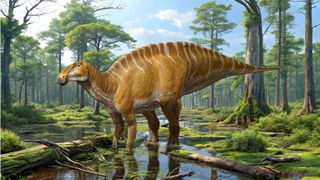
Giant 'cow of the Cretaceous' discovered almost 100 years ago identified as new duck-billed dinosaur
By Skyler Ware published
The dino lived during the Late Cretaceous alongside other hadrosaurids in present-day New Mexico.
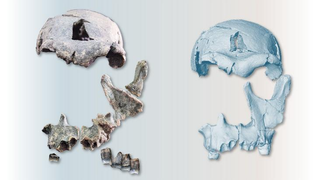
1.5 million-year-old Homo erectus face was just reconstructed — and its mix of old and new traits is complicating the picture of human evolution
By Skyler Ware published
A never-before-seen Homo erectus face reveals a complex picture of early human evolution.
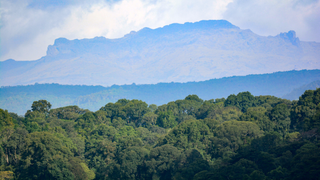
Earth's seasons vary wildly, even at the same latitude, new research finds
By Skyler Ware published
Earth's seasons look very different at locations not far from each other, 20 years' worth of satellite data reveals.
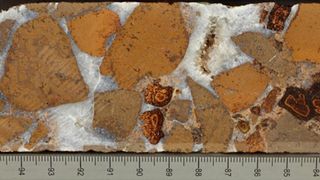
Undersea lava rubble acts as a 'sponge' for carbon dioxide, study finds
By Skyler Ware published
Lava rubble at the bottom of the sea is acting like a giant "sponge" for carbon dioxide, ancient cores reveal.
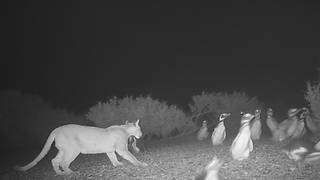
Pumas in Patagonia started feasting on penguins — but now they're behaving strangely, a new study finds
By Skyler Ware published
Pumas in Patagonia, Argentina are eating penguins in a national park — and it's changing how the big cats are interacting with each other.

Stunningly preserved Roman-era mosaic in UK depicts Trojan War stories — but not the ones told by Homer
By Skyler Ware published
A newfound mosaic draws inspiration from "Phrygians," a play by the Athenian playwright Aeschylus that survives only in bits and pieces.

'It is simply too hot to handle': 2024 was Arab region's hottest year on record, first-of-its-kind climate report reveals
By Skyler Ware published
The Arab region just had its hottest year on record, a new climate report reveals.

Anacondas became massive 12 million years ago — and it worked so well, they haven't changed size since
By Skyler Ware published
The snakes stayed large and thrived even when cooling temperatures and shrinking habitats killed off other giant reptiles millions of years ago.

Law of 'maximal randomness' explains how broken objects shatter in the most annoying way possible
By Skyler Ware published
A new mathematical equation describes the distribution of different fragment sizes when an object breaks. Remarkably, the distribution is the same for everything from bubbles to spaghetti.

Most modern dogs have wolf DNA from relatively recent interbreeding. Here's which breeds are the most and least 'wolfish.'
By Skyler Ware published
About two-thirds of modern dog breeds carry some wolf ancestry introduced within the past few thousand years.

'Like a sudden bomb': See photos from space of Ethiopian volcano erupting for first time in 12,000 years
By Skyler Ware published
Hayli Gubbi, a shield volcano in northern Ethiopia, erupted for several hours on the morning of Sunday, Nov. 23 — the first eruption since the start of the Holocene.
Get the world’s most fascinating discoveries delivered straight to your inbox.

